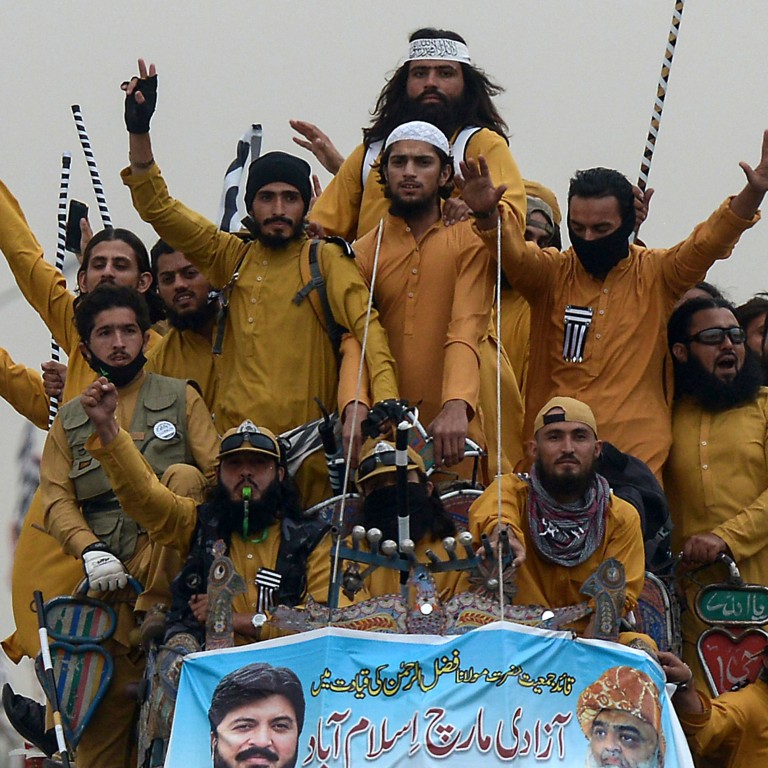
Explainer | Why Pakistan’s Islamists aren’t the real problem for Imran Khan
- An influential cleric is leading the campaign to bring down Pakistan’s leader but the Islamists are really window dressing for an intricate opposition movement
- Should Beijing be worried about the China-Pakistan Economic Corridor?
With the leaders of the country’s two largest mainstream opposition political parties, ex-prime minister Nawaz Sharif and former president Asif Ali Zardari, behind bars on corruption charges, Rehman has assumed leadership of a campaign against the controversial 2018 elections that brought Khan to power.
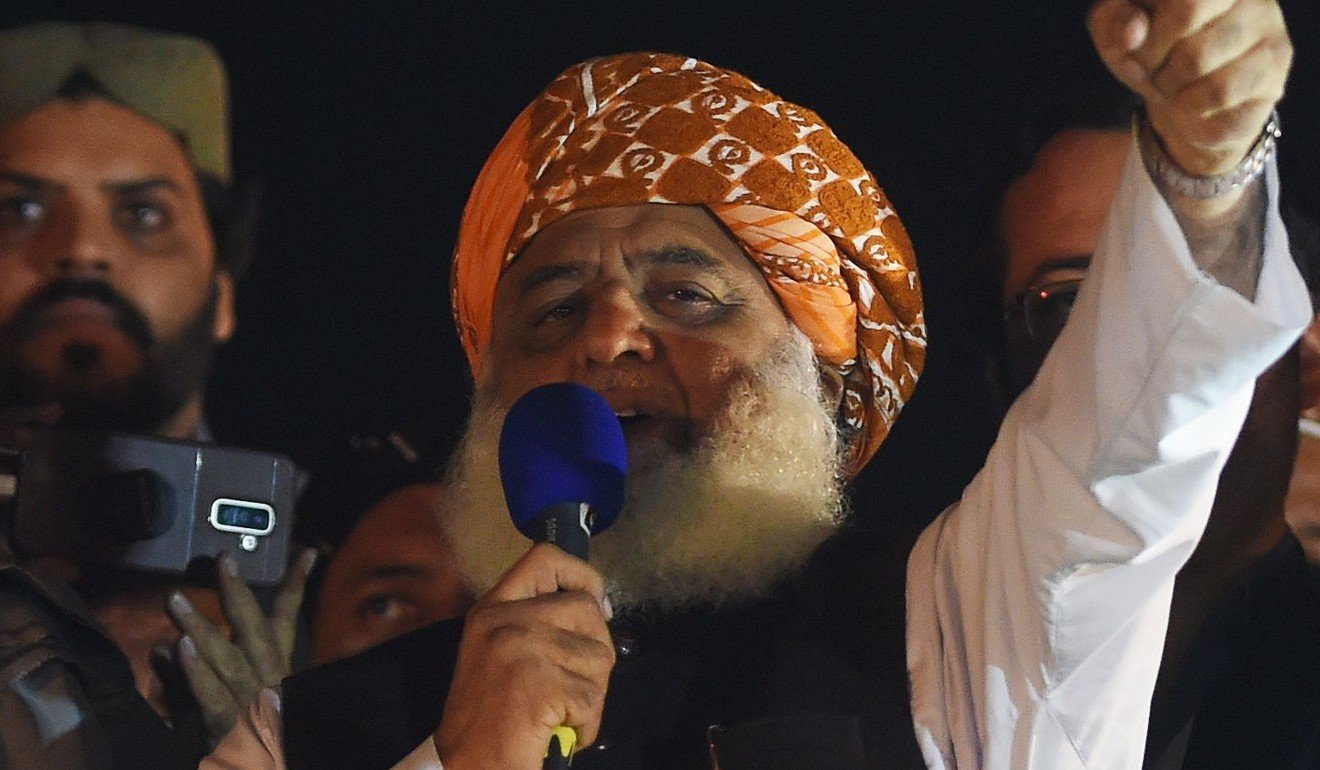
WHY ARE ISLAMISTS PROTESTING?
Rehman has dubbed the protest campaign the “azadi [freedom] march”. This is reflected in his four-point charter of demands: the resignation of Khan, fresh elections, non-interference by the military, and the upholding of the constitution in letter and spirit.
Rehman is giving voice to the widely held public sentiment that the 2018 general elections were brazenly rigged by the military to bring about the downfall of their civilian rivals for power.
Ignore US conspiracy theories. Khan needs China-Pakistan Economic Corridor now more than ever
According to this view, Khan is the handsome face of an ugly farce that has stolen the democratic rights of Pakistanis. Rehman contends that this supposed wrong must be righted before an implosive “conflict between state institutions” breaks out.
Rehman’s demands have been endorsed by Sharif’s centre-right Pakistan Muslim League-Nawaz party and the Pakistan People’s Party of Zardari, ex-prime minister Benazir Bhutto’s widower.
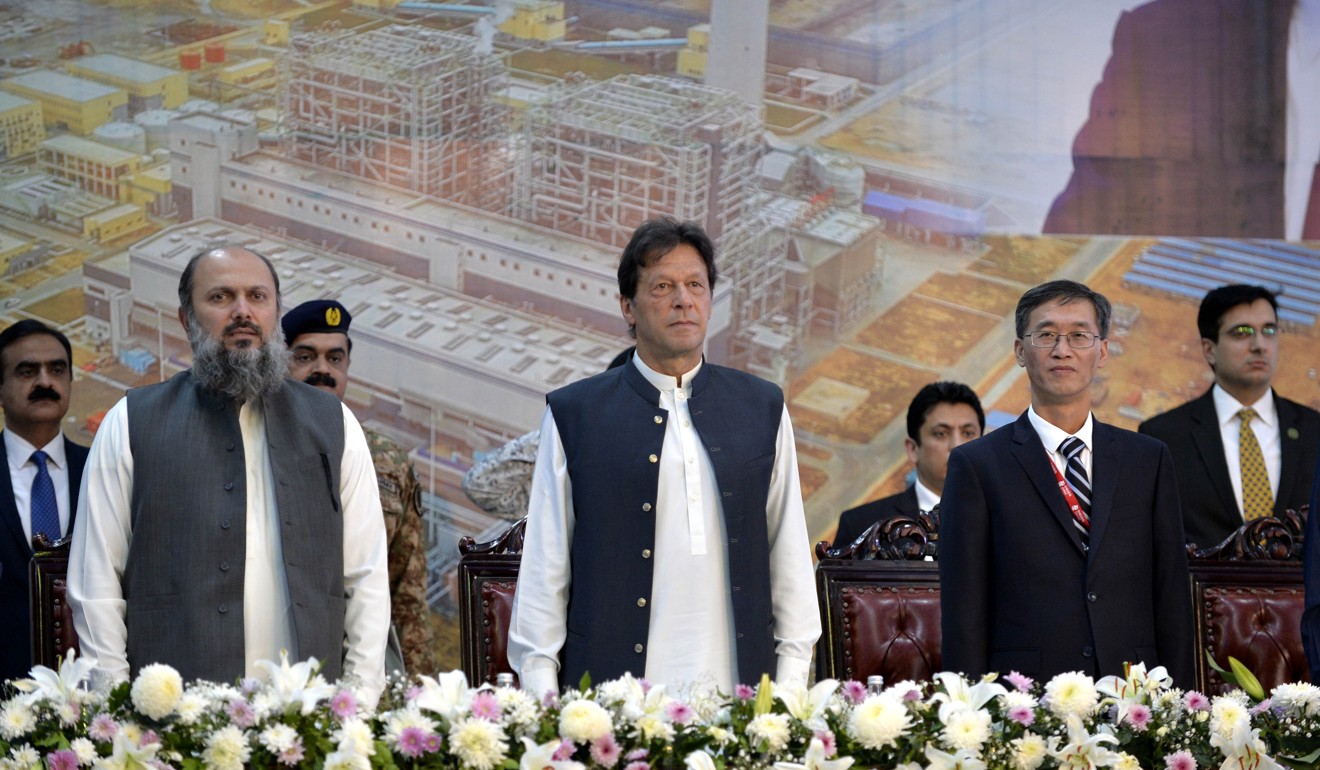
However, their party cadres have not joined the thousands of seminary students encamped in Islamabad.
Rehman has said he understands their “compulsions”, an oblique reference to the enormous pressure they are reportedly under from the military to retire from politics and go into exile abroad.
Islamists tell Pakistan’s Khan: ‘we can arrest you if you don’t quit’
As a veteran of opposition movements since the 1980s, and subsequent coalition partner in many federal and provincial governments, Rehman has the political nous and the Islamist manpower to lead the campaign.
As such, Khan is not facing an Islamist protest movement per se, but a resurgence by Pakistan’s political old guard.
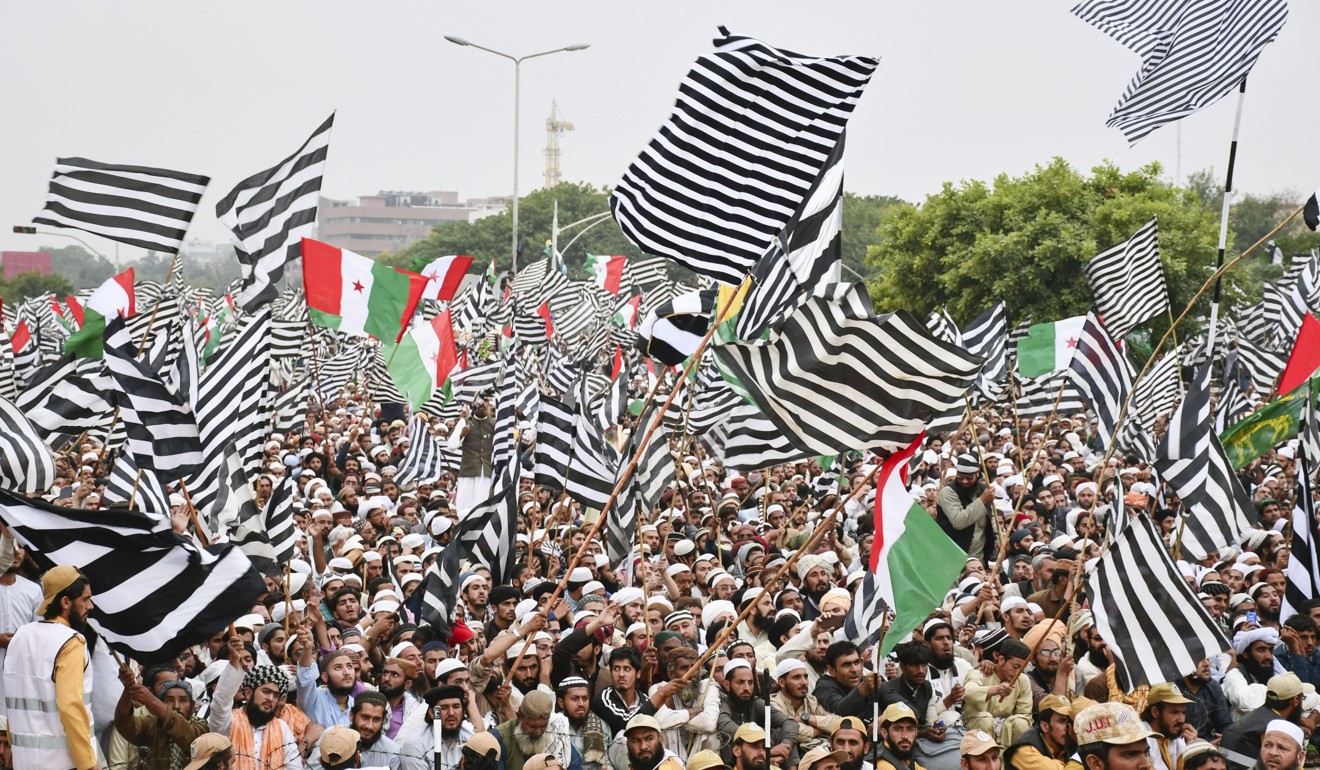
WHERE IS THE ALL-POWERFUL MILITARY?
Rehman has made a point of dragging the military into the spotlight, but so far avoided crossing the traditional red line of Pakistani politics of referring to it by name – instead using vague terms like “the establishment” and “state institutions”.
Usually, this enables the military to stay out of public discourse and maintain the position of being above partisan politics. This time, however, Rehman’s direct challenge to its impunity has evinced several very public responses.
China-Pakistan Economic Corridor: A visual explainer
Taking the bait, the military’s chief spokesman, Major General Asif Ghafoor, challenged Rehman to name the institutions allegedly interfering in politics. Responding, Rehman said Ghafoor had proven his point.
The military has unabashedly vowed to stand by Khan. The army’s corps commanders conference – effectively, the military’s cabinet – has issued a stern warning against any violent attempt by the Islamists to overthrow the government.
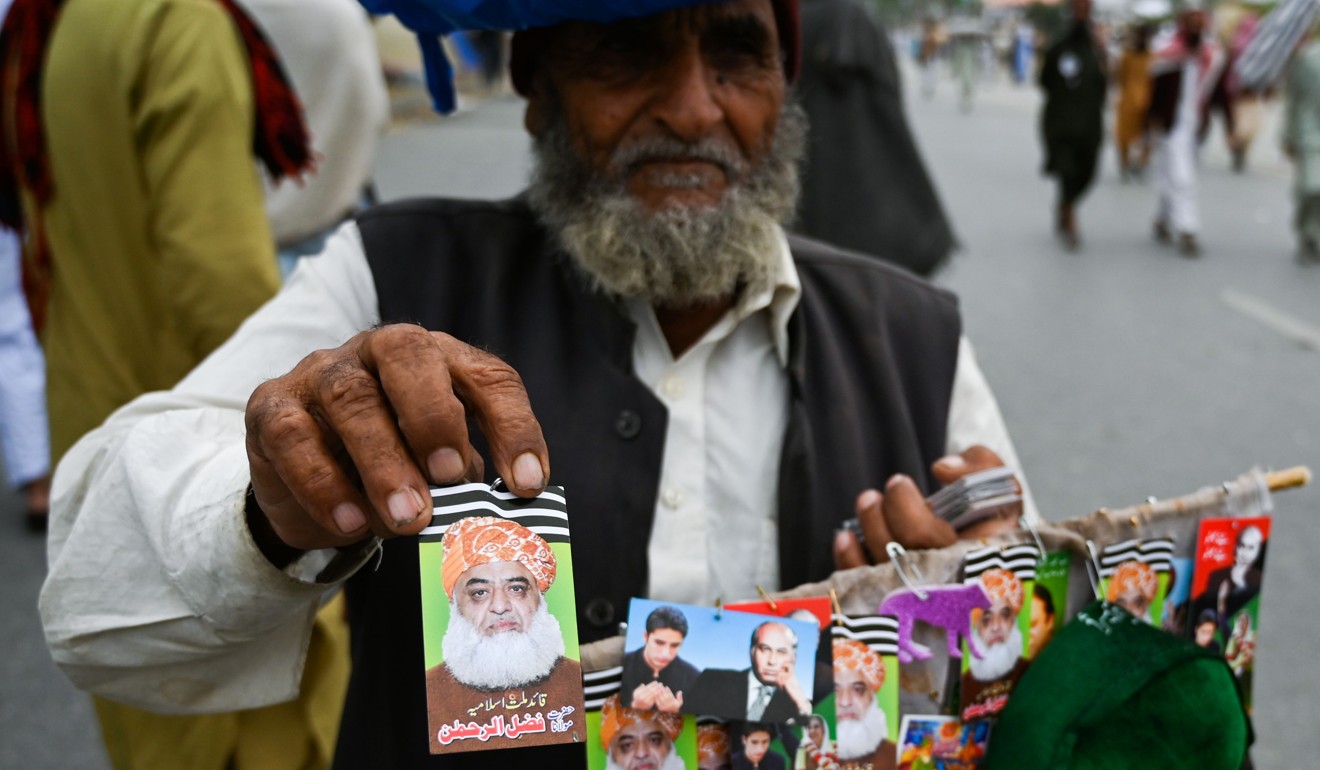
HOW MIGHT THIS PLAY OUT?
Government emissaries on Wednesday began negotiations with leaders of Rehman’s Jamiat Ulema-i-Islam (Fazl) party. They have been joined by Khan’s coalition partners, the veteran “Chaudhry brothers” Shujaat Hussain and Pervez Elahi, who often act as mediators of last resort for the state.
By this measure, crunch time is fast approaching in Islamabad.
However, as a veteran cleric-politician, Rehman has had a deep-seated relationship with the military, which in turn has given rise to speculation that he may enjoy the covert backing of several top generals.
While that seems far-fetched, a growing number of senior ex-servicemen, reputed to exercise influence over the military leadership, are increasingly perturbed at the degree to which the military has become publicly mired in Pakistan’s messy politics.
In fact, there have already been calls for a negotiated settlement between Pakistan’s rivals for power. Supreme Court Chief Justice Asif Khosa, one of the judges who barred Sharif from holding public office for life in 2017, has proposed an “inter-institutional” dialogue. Rehman and other opposition politicians, on the other hand, want a renewal of the social contract enshrined in the constitution.
Pakistani Prime Minister Imran Khan seeks Chinese support over Kashmir as he starts Beijing visit
This suggests a political compromise may be reached. The bail recently granted by courts to an increasingly frail Sharif and his daughter, Maryam Nawaz, is seen by many analysts as a harbinger of a political deal of sorts.
Sharif’s health is also a factor. Top doctors have not been able to treat his illness and have recommended he be sent overseas for treatment. But if he dies, his family and supporters will invariably blame Khan and his military backers. Massive public unrest is likely to follow, as it did following the assassination of Benazir Bhutto in 2007.
The key difference, however, is that Sharif’s support base is populous eastern Punjab province, from which most of the military’s officers and soldiers are recruited. This makes it a politically much more damaging battleground for the wider Pakistani state than the smaller minority provinces, which have long complained about being subjected to “Punjabi” exploitation.
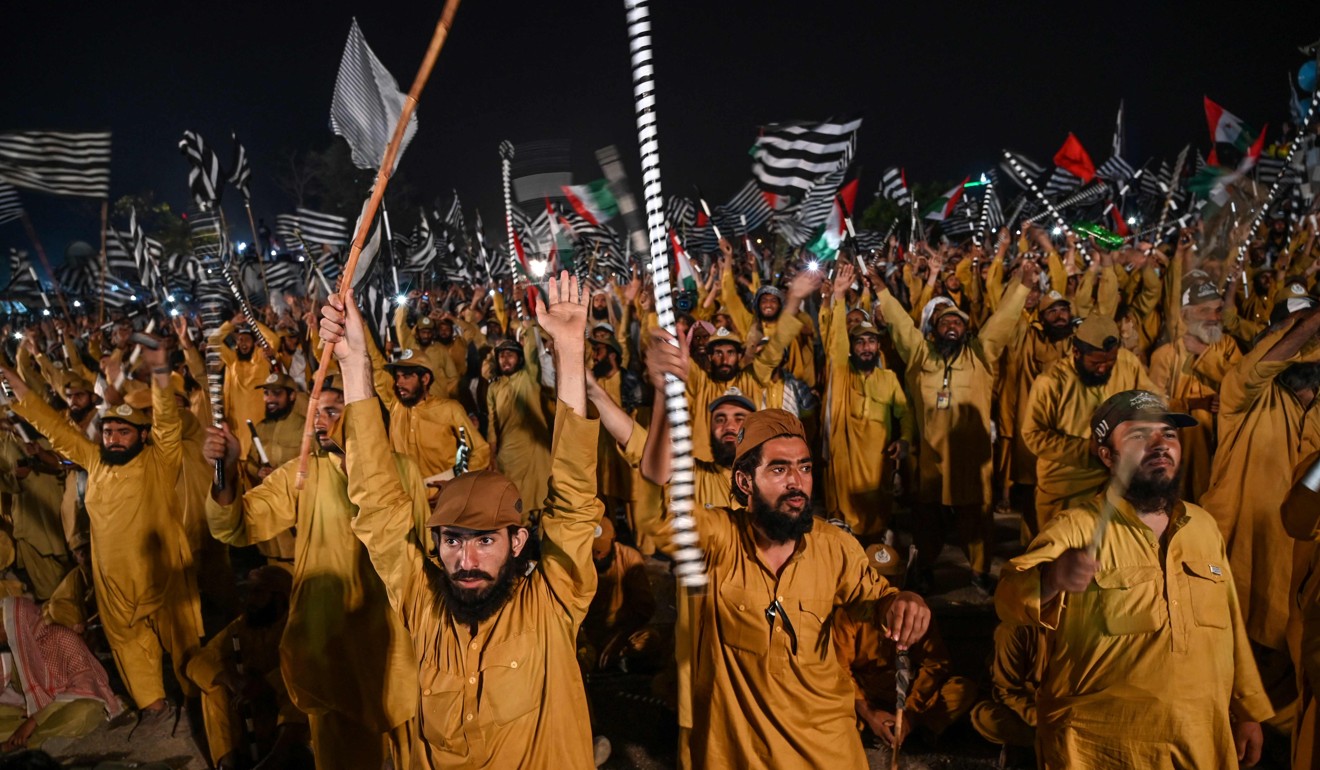
WILL THIS AFFECT THE CHINA-PAKISTAN ECONOMIC CORRIDOR?
The Islamists’ sit-in has coincided with the annual meeting of the joint coordination committee of the China-Pakistan Economic Corridor (CPEC) in Islamabad. Following Khan’s visit to Beijing a month ago, the committee is now expected to approve a host of new projects ranging from education and health care schemes to agricultural and industrial ventures.
If the protesters decide to head for the so-called Red Zone, Chinese delegates may find themselves in an awkward situation, although their safety will not be threatened by China-friendly Rehman’s hordes.
Like Pakistan’s other close friends, Saudi Arabia and Turkey, China will not want the political situation there to deteriorate, especially with billions of CPEC dollars on the line. Along with the US, which needs a stable Pakistan to see through a peace deal with Afghanistan’s Taliban, Beijing may quietly be urging the military and political leadership in Islamabad to compromise.

